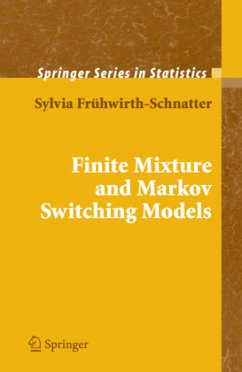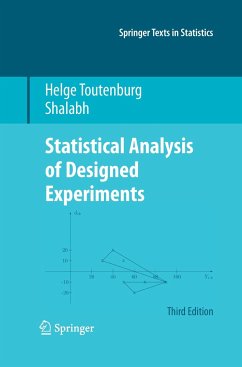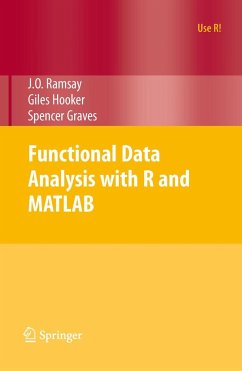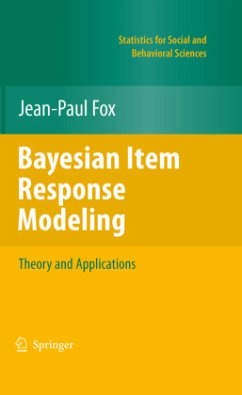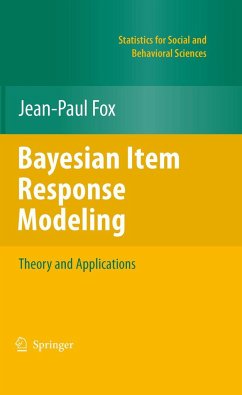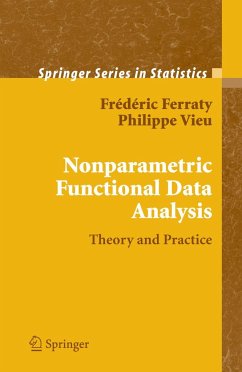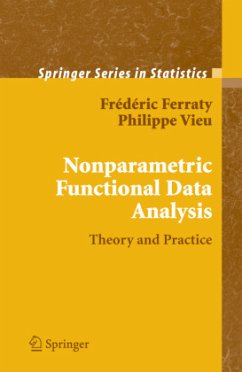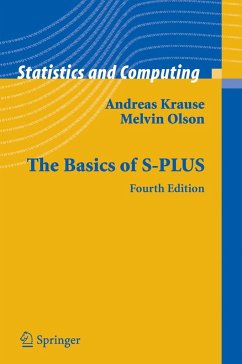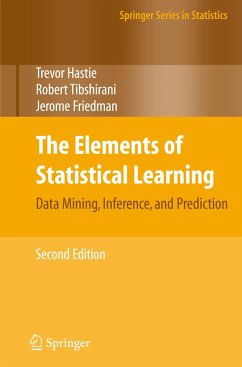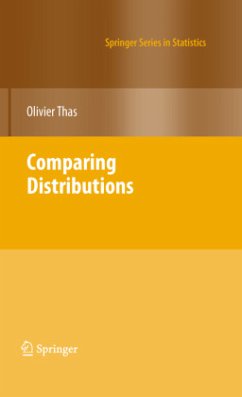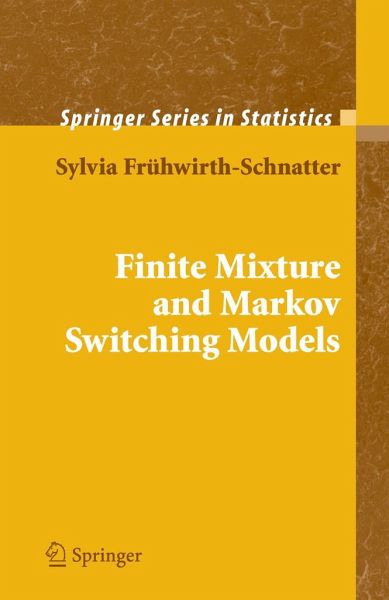
Finite Mixture and Markov Switching Models
Versandkostenfrei!
Versandfertig in 6-10 Tagen
151,99 €
inkl. MwSt.
Weitere Ausgaben:

PAYBACK Punkte
76 °P sammeln!
The prominence of finite mixture modelling is greater than ever. Many important statistical topics like clustering data, outlier treatment, or dealing with unobserved heterogeneity involve finite mixture models in some way or other. The area of potential applications goes beyond simple data analysis and extends to regression analysis and to non-linear time series analysis using Markov switching models.For more than the hundred years since Karl Pearson showed in 1894 how to estimate the five parameters of a mixture of two normal distributions using the method of moments, statistical inference f...
The prominence of finite mixture modelling is greater than ever. Many important statistical topics like clustering data, outlier treatment, or dealing with unobserved heterogeneity involve finite mixture models in some way or other. The area of potential applications goes beyond simple data analysis and extends to regression analysis and to non-linear time series analysis using Markov switching models.
For more than the hundred years since Karl Pearson showed in 1894 how to estimate the five parameters of a mixture of two normal distributions using the method of moments, statistical inference for finite mixture models has been a challenge to everybody who deals with them. In the past ten years, very powerful computational tools emerged for dealing with these models which combine a Bayesian approach with recent Monte simulation techniques based on Markov chains. This book reviews these techniques and covers the most recent advances in the field, among them bridge sampling techniques and reversible jump Markov chain Monte Carlo methods.
It is the first time that the Bayesian perspective of finite mixture modelling is systematically presented in book form. It is argued that the Bayesian approach provides much insight in this context and is easily implemented in practice. Although the main focus is on Bayesian inference, the author reviews several frequentist techniques, especially selecting the number of components of a finite mixture model, and discusses some of their shortcomings compared to the Bayesian approach.
The aim of this book is to impart the finite mixture and Markov switching approach to statistical modelling to a wide-ranging community. This includes not only statisticians, but also biologists, economists, engineers, financial agents, market researcher, medical researchers or any other frequent user of statistical models. This book should help newcomers to the field to understand how finite mixture andMarkov switching models are formulated, what structures they imply on the data, what they could be used for, and how they are estimated. Researchers familiar with the subject also will profit from reading this book. The presentation is rather informal without abandoning mathematical correctness. Previous notions of Bayesian inference and Monte Carlo simulation are useful but not needed.
Sylvia Frühwirth-Schnatter is Professor of Applied Statistics and Econometrics at the Department of Applied Statistics of the Johannes Kepler University in Linz, Austria. She received her Ph.D. in mathematics from the University of Technology in Vienna in 1988. She has published in many leading journals in applied statistics and econometrics on topics such as Bayesian inference, finite mixture models, Markov switching models, state space models, and their application in marketing, economics and finance.
For more than the hundred years since Karl Pearson showed in 1894 how to estimate the five parameters of a mixture of two normal distributions using the method of moments, statistical inference for finite mixture models has been a challenge to everybody who deals with them. In the past ten years, very powerful computational tools emerged for dealing with these models which combine a Bayesian approach with recent Monte simulation techniques based on Markov chains. This book reviews these techniques and covers the most recent advances in the field, among them bridge sampling techniques and reversible jump Markov chain Monte Carlo methods.
It is the first time that the Bayesian perspective of finite mixture modelling is systematically presented in book form. It is argued that the Bayesian approach provides much insight in this context and is easily implemented in practice. Although the main focus is on Bayesian inference, the author reviews several frequentist techniques, especially selecting the number of components of a finite mixture model, and discusses some of their shortcomings compared to the Bayesian approach.
The aim of this book is to impart the finite mixture and Markov switching approach to statistical modelling to a wide-ranging community. This includes not only statisticians, but also biologists, economists, engineers, financial agents, market researcher, medical researchers or any other frequent user of statistical models. This book should help newcomers to the field to understand how finite mixture andMarkov switching models are formulated, what structures they imply on the data, what they could be used for, and how they are estimated. Researchers familiar with the subject also will profit from reading this book. The presentation is rather informal without abandoning mathematical correctness. Previous notions of Bayesian inference and Monte Carlo simulation are useful but not needed.
Sylvia Frühwirth-Schnatter is Professor of Applied Statistics and Econometrics at the Department of Applied Statistics of the Johannes Kepler University in Linz, Austria. She received her Ph.D. in mathematics from the University of Technology in Vienna in 1988. She has published in many leading journals in applied statistics and econometrics on topics such as Bayesian inference, finite mixture models, Markov switching models, state space models, and their application in marketing, economics and finance.




